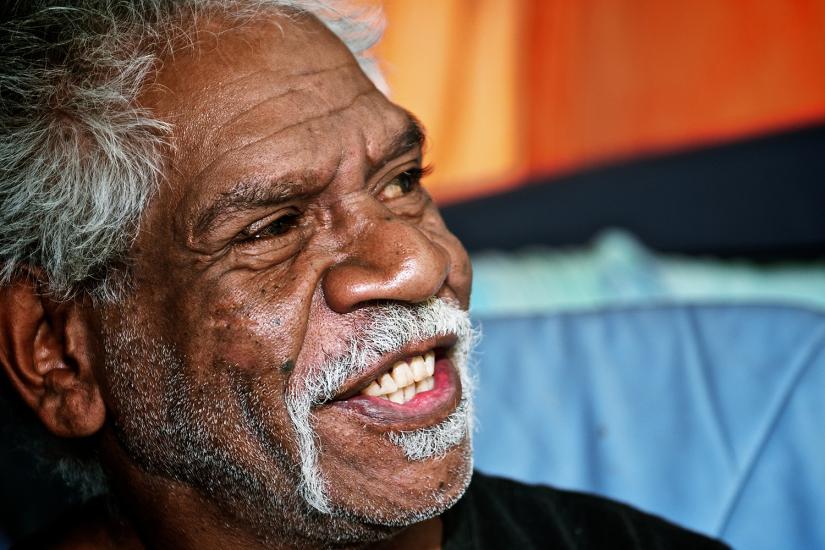
Diabetes has an outsized impact on First Nations communities. According to the Australian Bureau of Statistics, it’s the second leading cause of death among First Nations people, who experience the condition at a rate more than three times higher than the non-Indigenous population.
Supporting people with diabetes to manage their health is key to driving better health outcomes. But rather than turning to the textbooks, researchers in the UTS Faculty of Health are leveraging the power of an unlikely emotion: empathy.
Research has consistently shown that people who receive care from health providers with high levels of empathy experience have improved clinical outcomes.' – Dr Shannon Lin, the Diabetes Course Director and Senior Lecturer in the UTS Faculty of Health.
In the context of diabetes, empathetic care translates to better diabetes self-management and glycaemic management, reduced emotional distress and lower rates of diabetes-related complications.
Building on these foundations, Dr Lin led the development of a digital story designed to build cultural empathy – a form of empathy that seeks to understand the feelings and experiences of people from other cultures – among diabetes educators.
Now, this digital story is set to transform education and training outcomes for all healthcare professionals in Australia.
Centring First Nations stories

Called John’s Story, the digital narrative draws on the lived experiences of First Nations people living with or at risk of diabetes. By introducing diabetes educators to the cultural considerations required to care effectively for First Nations people, the story is intended to help establish culturally appropriate relationships through empathetic care that support people with diabetes to better manage their condition at home.
The story, which was supported by a UTS Social Impact Grant and matched funding from the UTS Faculty of Health, was co-designed in partnership with the Illawarra Aboriginal Medical Service, Diabetes Australia and the Australian Diabetes Educators Association.
The project committee was comprised of First Nations healthcare professionals, First Nations people with lived experience of diabetes, diabetes educators working with First Nation people, and UTS academics. This team came together in a series of co-design workshops that were centred on lived experience.
The story is actually made up of the collective experiences that we talked about in these meetings. – Dr Lin.
We encouraged participants to tell us some of the stories that resonated with them – to share their story and their ideas on what sort of format they imagined for the work.
The resulting story captures the key themes – the fear associated with a diabetes diagnosis, the stress of being overwhelmed by complex health information, the frustration of culturally unsafe care – that emerged during these sessions. The titular John is a fictional person, but his story represents the collective real-life experiences of the lived experience participants and the challenges they’ve encountered in accessing diabetes care.
The project committee members delivered extensive feedback on the early drafts, helping Dr Lin revise the story’s content and tone to make it a credible representation of First Nations experiences.
Once the final draft was in place, Dr Lin worked with the Faculty of Health to pilot the story with 98 participants. These included students in the UTS Graduate Certificate of Diabetes Education and Management, a specialist qualification for healthcare professionals seeking specific expertise in diabetes care, and health care professionals from the Institute for Urban Indigenous Health and Diabetes Care Partnership.
Surveys conducted before and after pilot participants viewed the video showed a significant increase in cultural empathy, demonstrating its effectiveness in shaping learner attitudes. Anecdotally, Dr Lin says, a number of Indigenous students and research team members were very emotional after watching the story.
They were actually in tears. One person said, 'Thank you so much. That made me think about people in my community or my family or myself — I can see myself there'.
Transforming health care practice
John’s Story has since been embedded in diabetes education across Australia and will soon become part of national diabetes healthcare professional training.
Closer to home, the digital story now forms part of the Graduate Certificate of Diabetes Education and Management, the Bachelor of Nursing and the Bachelor of Midwifery at UTS. As well as providing students with vital cultural insights into diabetes management and care, it will also contribute the University’s Indigenous Graduate Attribute commitment, which is intended to equip all UTS graduates with the capacity to work effectively with and for Indigenous Australians.
It’s about making our graduates and students more culturally aware – I think empathy would definitely help with their practice. – Dr Lin says.
My long-term goal is really for non-Indigenous health care professionals to be more culturally aware and competent in delivering diabetes care. I think this is just one of the small steps towards achieving that goal.
The problem
Indigenous Australians face disproportionate rates of diabetes and pre-diabetes compared to non-Indigenous populations, highlighting their marginalised status within the country. The initiative focused on supporting Indigenous Australians living with or at risk of diabetes to foster a healthier society.
The response
By enhancing the cultural empathy of diabetes educators, the project sought to improve healthcare access and outcomes in Indigenous communities. Cultural empathy is crucial for building trust and effective communication in healthcare settings, which in turn enhances diabetes self-management, glycemic control and reduces complications and emotional distress associated with the condition.
What helped accomplish this?
Researchers created a co-designed digital story, developed from personal narratives and feedback to enhance cultural safety and understanding. This story and other teaching resources were hosted on the Virtual Empathy Museum for open access and integrated into the UTS teaching curriculum.
What has changed as a result?
By equipping diabetes educators with enhanced cultural empathy skills, the project not only improved quality of care but also empowered Indigenous Australians to better manage their diabetes and overall health. The project enhanced partnerships and cultural awareness among healthcare professionals, aiming to sustain its impact through continued dissemination and use in practice.
Team members
-
 Dr Shannon LinSenior Lecturer
Dr Shannon LinSenior LecturerSchool of Public Health

